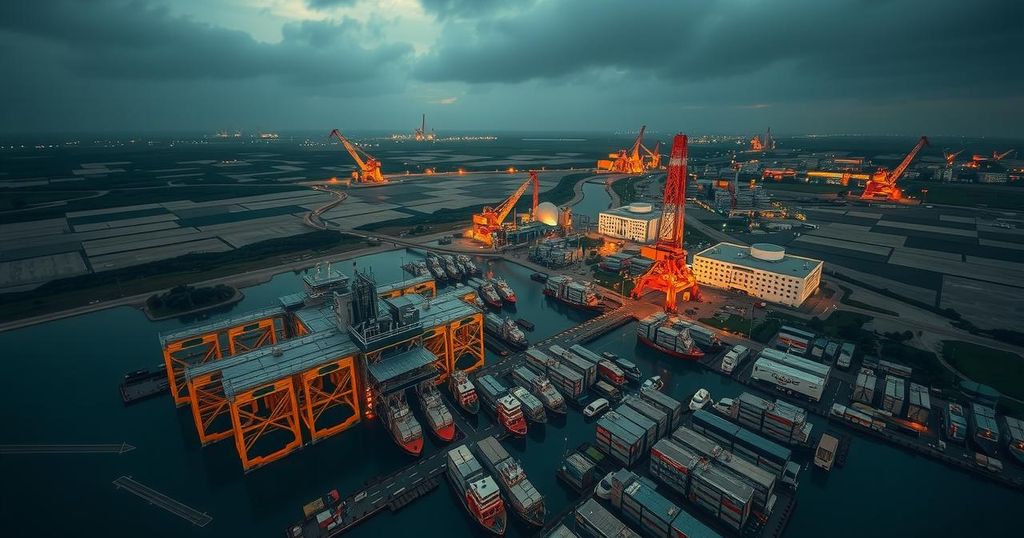Benin’s economy, reliant on foreign assistance, has undergone several phases of restructuring since independence. Agricultural output dominates, with an increased focus on cash crops, while industrial growth supports the economy. Despite liberalization efforts in the 1990s, challenges, including governance issues and infrastructure deficits, linger. The deepwater port at Cotonou presents significant trade opportunities.
The economy of Benin has historically depended on external funding, particularly from France and international organizations, to alleviate the challenges of economic stagnation and the low standard of living faced by most inhabitants. Following a coup in 1972, the government initiated economic restructuring based on socialist principles, leading to nationalization and enhanced economic ties with socialist nations. However, despite restructuring efforts and reduced financial dependency on France, corruption and economic issues persisted. In the mid-1980s, a shift towards liberalization and economic privatization emerged, which coincided with constitutional changes and a move away from Marxism.
Agriculture plays a crucial role in Benin’s economy, engaging around 70 percent of the workforce. Since the 1980s, the country has achieved self-sufficiency in staple foods like yams, cassava, and rice, while cash crops such as cotton, cocoa, and coffee have seen increased production. Additionally, the fishing industry contributes significantly, with the majority of fish being exported to neighboring countries. Benin’s industrial sector includes various manufacturing facilities, notably processing plant for palm oil and cotton, as well as cement and sugar refining plants.
Electricity generation in Benin is largely thermal, supplemented by imports from Ghana. The financial landscape has evolved with privatization measures leading to the establishment of private banks and increased foreign aid for development projects. Consequently, agricultural products, especially cotton and various cash crops, form the backbone of export earnings, although informal trade, especially with Nigeria, presents challenges to the trade balance.
Benin’s transportation infrastructure includes two paved road networks and a railway from Cotonou to Parakou, alongside navigable rivers and lagoons. An international airport facilitates connectivity with Africa and Europe. The deepwater port at Cotonou holds potential for economic growth by serving as a trade outlet for neighboring countries.
Overall, while Benin has made strides in economic restructuring and diversification, it continues to grapple with governance issues and the need for improved infrastructure to maximize its economic potential.
Since gaining independence, Benin’s economy has been heavily reliant on foreign aid, particularly from France and international organizations, to cope with persistent economic challenges. Historical attempts to restructure the economy along socialist lines in the 1970s have not yielded sustainable improvements, leading to a transition towards liberalization and privatization in the 1990s. Agriculture remains the mainstay of the economy, with significant portions of the workforce engaged in farming, complemented by fishing and burgeoning industrial sectors.
In conclusion, while Benin’s economy has shown resilience through diversification and liberalization efforts, significant challenges such as corruption, governance, and infrastructure limitations persist. By focusing on maximizing its natural resources and enhancing its transportation and trade capabilities, Benin has the potential to improve its economic standing and the quality of life for its citizens.
Original Source: www.britannica.com






